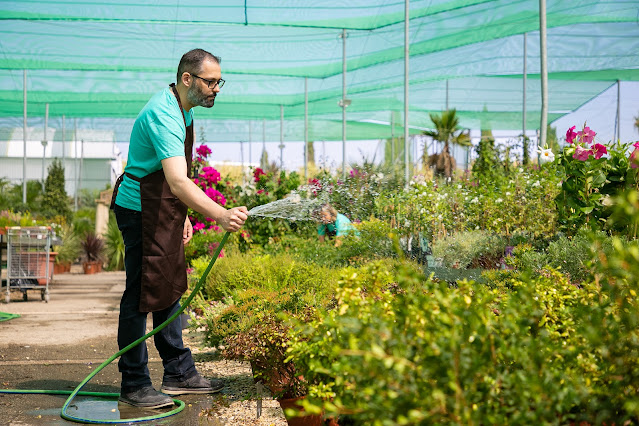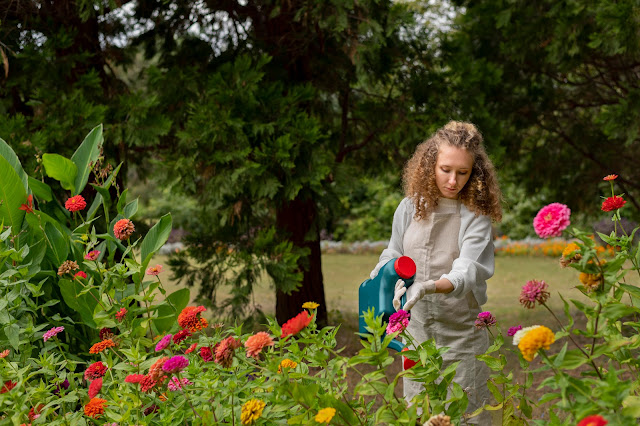Before diving into specific gardening techniques, it's essential to understand the basic needs of plants. All plants require sunlight, water, nutrients, and proper growing conditions to thrive. When selecting and caring for plants, keep these fundamental requirements in mind.
- Sunlight: Most plants need adequate sunlight daily to thrive. Consider the sun's position throughout the day and where it hits your garden area.
- Water: Different plants have different water requirements. Be sure to understand the specific needs of your plants and adapt your watering regimen accordingly.
- Nutrients: Plants require essential nutrients to grow and thrive. Healthy soil is critical, as it provides plants with the nutrients, they need to be strong and healthy.
- Growing Conditions: Consider factors such as temperature, humidity, and wind when selecting plants suitable for your garden.
Once you understand basic plant needs, the next step is selecting the right plants for your garden. To ensure success, take into consideration aspects such as climate, soil type, and the amount of sunlight your garden receives. Visit local nurseries and garden centers for expert advice on which plants are suitable for your specific growing conditions.
Healthy soil is the foundation of any thriving garden. Understanding your soil type and how to improve it is crucial. Conduct a soil test to determine its pH levels, nutrient content, and other characteristics. Based on the results, you can amend the soil as needed to provide the proper balance of nutrients for your plants. Common soil amendments include lime (for acidic soils), sulfur (for alkaline soils), compost, and slow-release organic fertilizers.
An essential aspect of gardening is understanding how and when to water your plants. Overwatering can cause root rot, while underwatering can lead to wilt and plant stress. To ensure your plants receive the proper amount of water:
- Use a moisture meter to determine the soil's moisture level.
- Water early in the morning or late in the day to reduce evaporation.
- Use a soaker hose or drip irrigation system to deliver water directly to the soil around the plant roots.
- Adjust your watering schedule based on the season, weather conditions, and the specific water needs of your plants.
Fertilizers and other soil amendments can significantly improve your garden's overall health and productivity. However, improper use can lead to nutrient imbalances and other issues. Keep the following tips in mind:
- Always follow application instructions for fertilizers and amendments.
- Use organic, slow-release fertilizers to improve soil health and avoid polluting waterways.
- Regularly test your soil to determine nutrient levels and adjust your fertilizing regimen accordingly.
Regular maintenance is crucial for a thriving garden. Some essential garden care tasks include:
- Pruning: Regularly removing dead or damaged branches, as well as overgrown or crossing stems, promotes healthy growth and helps prevent disease.
- Mulching: Adding a layer of organic mulch around plants helps retain moisture, suppress weeds, and regulate soil temperature. You could opt for convenient and reliable mulch delivery in Escondido, or in other areas, to supply high-quality mulch to enhance your garden's health and sustainability.
- Pest and disease control: Regularly inspecting plants for signs of pests or disease is crucial. Address issues with organic or chemical treatments as needed.
Proper gardening tools are critical for efficient and effective garden care. Some essential tools include:
- Shovels and spades: For digging and turning soil
- Pruners and loppers: For trimming branches and stems
- Rakes and hoes: For soil preparation, weed removal, and debris cleanup
- Trowels and dibblers: For planting and transplanting smaller plants
To ensure the success of your garden, avoid these common gardening mistakes:
- Planting too closely together: Overcrowding can lead to poor air circulation and increased disease issues. Be sure to give your plants ample space to grow.
- Ignoring soil health: Test your soil regularly and amend as needed to provide the best growing conditions for your plants.
- Overwatering: Use a moisture meter and follow your plants' specific water requirements to avoid overwatering.
Lastly, never stop learning about gardening. Seek out workshops, gardening clubs, and online resources to further your gardening knowledge and skills. The more you learn and practice, the more successful and rewarding your gardening experience will be.
Empowering yourself with expert gardening knowledge is essential to achieving success in your garden. By understanding the basic needs of plants, choosing the right plants for your specific conditions, and implementing proper garden care techniques, you can unlock your full gardening potential and create the healthy, thriving garden of your dreams. Remember that patience and persistence are key components of gardening success, and with time and practice, you can grow a beautiful, bountiful garden. Happy gardening!



No comments:
Post a Comment